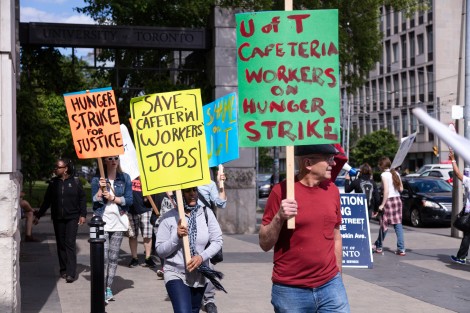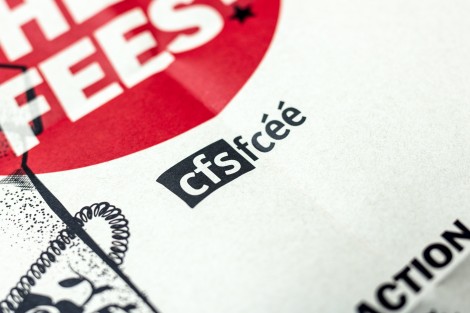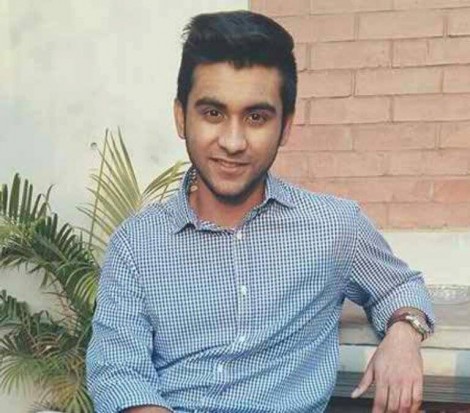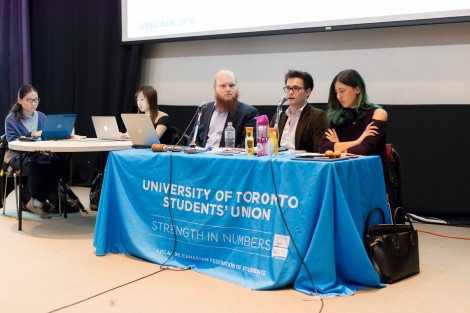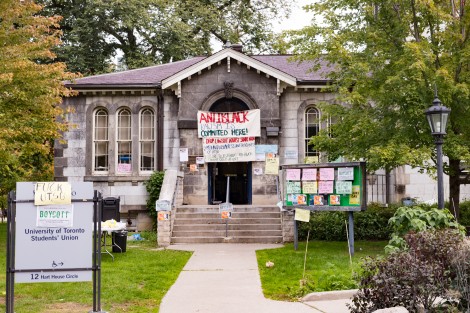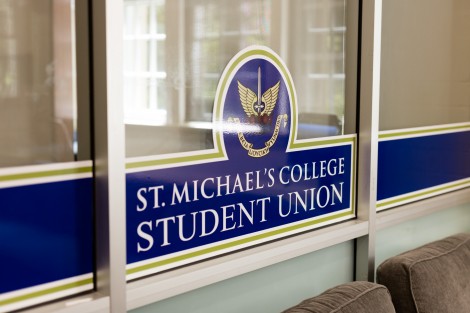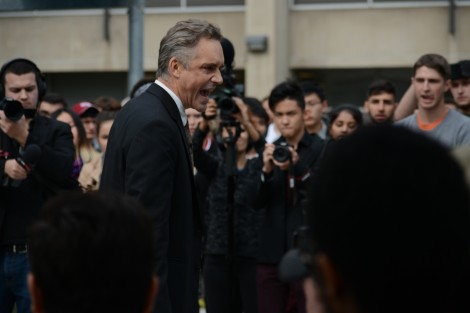Fossil fuel divestment report recommendations rejected
In February, U of T President Meric Gertler rejected recommendations from the Presidential Committee on Divestment from Fossil Fuels for the university to divest from companies that “engage in egregious behaviour and contribute inordinately to social injury.” The decision came after three years of student protests calling for U of T to take a stronger leadership role in mitigating the effect of climate change, with student-led environmental advocacy group UofT350 at the forefront of the cause.
In the report detailing his decision, Gertler moved for the university to take a “firm-by-firm” approach to divestment as opposed to a blanket divestment approach. His method proposed making decisions based on environmental, social, and governance-based factors (ESG), the advantage being that UofT could reconcile its fiduciary responsibilities with climate action.
UofT350 expressed disappointment over Gertler’s decision, saying that his rejection of divestment “totally ignores the urgent need to act on climate change, suggesting that tactics like ESG, shareholder activism and carbon disclosure are sufficient to encourage rapid societal shifts to carbon free economies.” The group engaged in several protests against Gertler’s decision, including one at the 2016 Cressy Awards Ceremony, in which UofT350 members dropped banners criticizing the university’s inaction.
— Josie Kao
Food Services at UTSG taken over by university
U of T announced in late January that the university would not be renewing its contract with Aramark, UTSG’s food services provider, and announced that it would take control of these services starting in August.
Employment under new management was offered to all UTSG Aramark employees, although UNITE HERE Local 75, the union representing Aramark employees on campus, cited concerns regarding job security, seniority, wages, and a 90-day probationary period after their re-hiring.
These concerns sparked protests on campus; food service employees, their friends and family, other unionized workers, and students participated. UNITE HERE Local 75 also organized a seven-day hunger strike, which took place during the June convocation. Seven people participated in this hunger strike, including two UTSG food services employees; food service workers employed elsewhere; and UNITE HERE international organizing director, David Saunders.
Nearly all of the 250 food service employees were re-hired by U of T and are now represented by CUPE 3261. An increase in hourly wages was also offered to the former Aramark employees. Under the contract with the university, workers receive $20.29 per hour — up from the $12.00 to $12.80 most workers were paid while employed by Aramark. Additionally, their employment with the university includes health plans, vacation time, and a tuition waiver for the employees and their dependents.
— Shanna Hunter
Canadian Federation of Students faced criticism from U of T
The Canadian Federation of Students (CFS), an organization that includes over 80 student unions from across the country, was the subject of a report released by the University of Toronto Students’ Union’s (UTSU) ad-hoc CFS committee.
The report detailed the relationship between the union and the federation and noted several concerns, including the unavailability of documents to the public, the powers granted to un-elected staff, and an “unnecessarily burdensome” process to leave the CFS.
The University of Toronto Graduate Students’ Union (UTGSU) unsuccessfully attempted to deferederate and remains a member of the CFS, after a legal decision was reached in July, despite the fact that 66 per cent of students who voted in the referendum of 2014 voted to leave the federation. The referendum was seven votes short of quorum.
A UTSG campaign, called You Decide UofT, was also launched to petition for a referendum on UTSU Local 98’s membership in the CFS. You Decide UofT has claimed impartiality on the question of defederation, but believes “students should have the opportunity to decide if they want to continue to be in the CFS.”
In September, UTSU was among ten signatories of an open letter to the CFS, which cited concerns such as a lack of transparency, excessive powers possessed by federation staff, a “closed” and “exclusive” tone set at general meetings, and an overly complicated process to leave the CFS. The federation’s chairperson, Bilan Arte, later responded, saying she would “ensure their concerns are addressed” and stated that she planned to follow up with each of the ten signatories.
The CFS National Executive has since committed to making documents, such as financial statements, available online in hope of increasing transparency. Additionally, a motion to lower the signature threshold needed on petitions to trigger defederation referendums was approved at the CFS National General Meeting, which took place from November 18–21.
— Shanna Hunter
U of T student, Tahmid Hasib Khan, held in Bangladesh then released
U of T student Tahmid Hasib Khan was detained by police for suspected involvement in a hostage crisis in early July, when armed militants stormed into the Holey Artisan Bakery in Dhaka, Bangladesh.
Khan was en route to a summer internship with UNICEF and stopped in Dhaka to visit his family. Five militants entered the restaurant while he was eating with friends, and held the patrons hostage.
Khan was among 13 hostages who escaped unharmed, but was taken into police custody after the attack. Khan’s friends and family demanded his release, but Khan’s status was unknown until August 4, when his arrest was announced by the Bangladeshi Police.
A Facebook page called “Free Tahmid” was created to support Khan’s release and has amassed over 67,000 likes. Weeks later, a video surfaced showing Tahmid holding a gun along an alleged attacker, but according to witnesses of the incident, Khan was forced by the militants to hold the weapon.
U of T President Meric Gertler penned a letter to Global Affairs Canada and Foreign Affairs Minister Stéphane Dion, offering the university’s assistance. Global Affairs Canada noted that it was limited in how it could help Khan, due to the fact that he was not a Canadian citizen.
Khan was released in October, although he was charged with not cooperating with police for interviews on July 10th and 21st.
— Vivian Li
A year at the UTSU: lawsuit, health coverage expansion, election disqualifications
The UTSU had initiated a lawsuit in September 2015 against its former President, Yolen Bollo-Kamara; its former Vice President Internal and Services, Cameron Wathey; and former Executive Director Sandra Hudson.The UTSU claimed that Bollo-Kamara and Wathey fraudulently authorized 2,589.5 hours of overtime pay for Hudson, leaving her with a severance package of $247,726.40, which accounted for approximately 10 per cent of the union’s operating budget. This was despite Hudson allegedly never having claimed any overtime hours during her employment.
In January, the University of Toronto Students’ Union (UTSU)’s legal dispute with Bollo-Kamara came to a close after the union’s announcement that both parties had reached a settlement and it would no longer be pursuing a lawsuit against her. The union and Wathey settled their dispute in February. The terms of both settlements remain confidential, although Wathey’s affadavit, made public, stated that he did not financially benefit from the arrangement.
The UTSU’s legal dispute with Hudson is ongoing. Hudson argues that she earned the money that she was paid by the UTSU. She also filed a counterclaim against the union, seeking $300,000 in damages, and alleging that the union breached the confidentiality and non-disparagement clauses of their agreement.
Later in the year, it was announced that the union was expanding the services offered through the UTSU health and dental plan, including psychological care. The changes, which took effect in September 2016, entitled members to receive up to $100 of coverage per session with a registered psychologist, for up to 20 sessions per year.
The union’s elections in March took a surprising turn when all members of the 1UofT slate were disqualified after rulings from the union’s Elections and Referenda Committee (ERC) and the election’s chief returning officer (CRO).
Complications also arose with the UTSU-led Student Commons project, with the union forecasting roughly $300,000 in operational deficits within the first year of the building’s opening.
In October, the UTSU’s proposal for a student levy averaging $3.75 per session for the next five years failed, with 74.5 per cent of voters voting against the fee. The proposed levy would have supported clubs, events, and student service funding.
After a history of annual general meetings (AGM) marked by delays, disruptions, and heated debates, this year’s UTSU’s AGM held on October 28 was praised for its civility and lack of controversy. The meeting saw three motions carried, including the establishment of an Appellate Board, for students to voice concerns or complaints about the election process. The other two motions concerned the union’s budgeting process.
— Emaan Thaver
Black Liberation Collective called for UTSU boycott
In October, the Black Liberation College called for a boycott of the UTSU and arranged a protest at the UTSU office, with posters plastering the UTSU office outlining the demands of BLC and identifying former and current members of UTSU by name for their alleged anti-Blackness.
The demands outlined by BLC of the UTSU were for increased funding for Black student groups on campus, for UTSU to drop its ongoing lawsuit with former UTSU executive director Sandra Hudson, and for UTSU to organize a town hall meeting to address the alleged systemic anti-Black racism within UTSU.
A statement released by UTSU after the protest addressed funding demands, stating that UTSU would establish “guaranteed funding for Level 3 clubs at the point of renewed recognition.”
On the lawsuit with Hudson, the statement called for “all individuals affected by the current legal dispute, including all parties to the lawsuit, to be treated with respect.”
In response to BLC demands for a town hall, UTSU held a town hall on November 10 regarding anti-Black racism that garnered five attendees. UTSU was lambasted by BLC for its lack of consultation with Black student groups on campus and poor organization, calling it a “useless” ploy “for good PR.”
Poor attendance at this initial town hall led to the cancellation of a second town hall on anti-Black racism that was meant to be held during the eXpression Against Oppression (XAO) week of activities. Though the UTSU stated it would organize another town hall in collaboration with Black student groups, but could not provide a timeline for when this would occur.
— Lesley Flores
St. Michael’s College Students’ Union
The St. Michael’s College Students’ Union (SMCSU) has seen its fair share of controversy this academic year.
In late July, the college administration launched an investigation into SMCSU’s finances after finding evidence of financial mismanagement in the union’s practices.
According to a blog post published in September by David Mulroney, President of St. Michael’s College, the investigation found that SMCSU’s finances were “primarily cash-based due to the union’s frequent club nights that take cash at the door and are often poorly accounted for.”
Mulroney announced his decision to restructure the college’s relationships with its three main student-associated groups — SMCSU, the St. Michael’s College Residence Council, and The Mike newspaper — and assign an academic advisor for each group.
In December, the union again found itself in hot water when a set of Snapchat videos involving current and former SMCSU council members surfaced on social media, which were widely called Islamophobic.
Recorded by the union’s then-Vice President Kevin Vando at a birthday party held at the residence of former SMCSU Vice-President Joseph Crimi, the videos show a former SMCSU councillor reading from a book titled Islam for Dummies and singing, “Would you be my Muslim boy?” to the tune of Estelle’s “American Boy.”
The backlash following the leak of the videos saw Vando resign and condemnation from the UTSU. SMCSU released a statement distancing itself from the actions of the party attendees, stressing that the event had not been sponsored or endorsed by the union. It also announced that it was implementing mandatory equity training for all its council members.
Days later, SMCSU announced in a Facebook post that it would be proroguing its activities until early 2017. SMCSU President Zachary Nixon also resigned, and it is unclear who is currently at the helm of SMCSU.
— Emaan Thaver
Jordan Peterson
U of T psychology professor Jordan Peterson became the subject of international media attention after The Varsity reported on his YouTube lecture series criticizing “political correctness.”
In the first video, which he released on September 27, Peterson decries Bill C-16, a piece of federal legislation that would amend the Canadian Human Rights Act and the Criminal Code to criminalize harassment and discrimination based on gender identity, as well as the Ontario Human Rights Commission’s policies on discrimination based on gender identity. He also states in the video that he would decline a student’s request to be referred to by non-binary pronouns.
Several student groups on campus — including the UTSU, the Arts & Science Students’ Union, the University of Toronto Mississauga Students’ Union, and the Scarborough Campus Students’ Union — issued statements criticizing Peterson’s remarks. In addition, activists from the trans community organized a rally and teach-in on trans issues in front of Sidney Smith Hall.
A week after that rally, students supporting Jordan Peterson held their own “U of T Rally for Free Speech” on campus, which was punctuated by conflict and outbursts of violence after it was met with counter-protests. The student group University of Toronto Students in Support of Free Speech was founded and recognized by Ulife after the rally. Subsequently, U of T announced that some members of the trans community on campus had received threats of violence on social media.
On October 23, Arts & Science Dean David Cameron and Vice-Provost Academic Programs Sioban Nelson sent a letter to Peterson, requesting that he refer to students by their requested pronouns and refrain from making such public statements. Peterson harshly criticized these letters, saying that they were attempts to silence him by the institution.
The university hosted a forum on Bill C-16 on November 19. Peterson debated Law Professor and Director of the Bonham Centre of Sexual Diversity at University College Brenda Cossman, and University of British Columbia (UBC) Professor of Education and Senior Associate Dean, Administration, Faculty Affairs & Innovation Mary Bryson. Mayo Moran, a U of T Law Professor who also serves as the Provost of Trinity College, moderated the forum.
Peterson has received ample publicity following his YouTube lectures, and has received a major influx of patrons on Patreon, a fundraising platform, since he began speaking publicly about political correctness.
— Tom Yun



